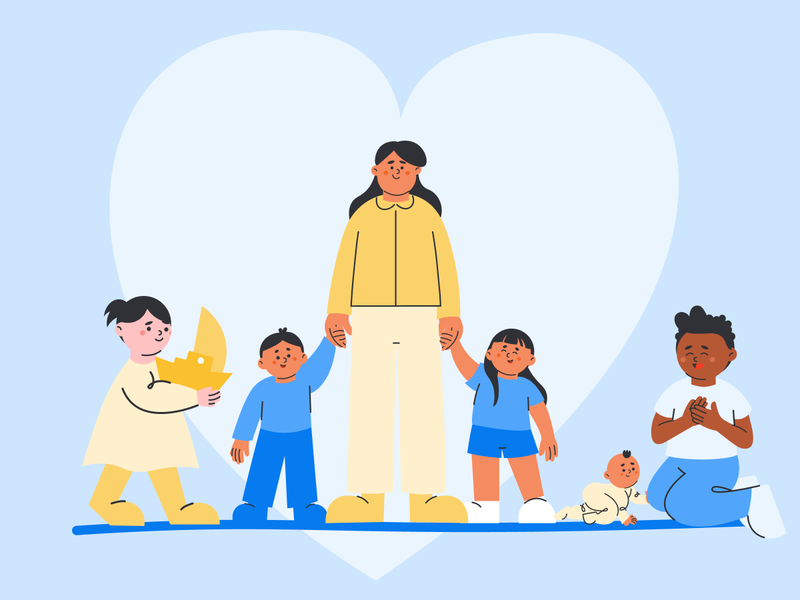As generations evolve, so does the language parents use with their children. Gen Z, characterized by their progressive values and emotional awareness, often steer clear of the authoritative and dismissive phrases once common in parenting.
This shift reflects broader changes in societal attitudes toward parenting, mental health, and emotional intelligence. Here are 20 phrases that were once staples of parental vocabulary but are unlikely to be heard from the mouths of Gen Z parents.
1. “Because I said so”
The phrase “Because I said so” used to be a parental staple, embodying authority and finality. However, Gen Z parents prefer dialogue over dictatorship. They focus on explaining the ‘why’ behind their decisions to foster understanding and mutual respect.
This shift reflects a broader emphasis on treating children as individuals capable of reasoning and reflection. In modern parenting, communication is key, and the old authoritarian stance has given way to nurturing discussion.
This approach not only strengthens the parent-child relationship but also teaches children critical thinking and decision-making skills. By moving away from this phrase, Gen Z parents are cultivating a home environment centered around empathy and collaboration.
2. “Stop crying or I’ll give you something to cry about”
Gone are the days when dismissing a child’s emotions was commonplace. Gen Z parents understand the importance of emotional expression and validation. The phrase “Stop crying or I’ll give you something to cry about” is replaced with comfort and support.
These parents prioritize helping their children to articulate their feelings and navigate difficult emotions. Encouraging emotional intelligence and resilience is more important than expecting stoicism.
By allowing tears to be shed and emotions to be felt, Gen Z parents help children develop a healthy relationship with their feelings. This transformative shift from suppression to support marks a new era in parenting.
3. “Kids should be seen, not heard”
The notion that “Kids should be seen, not heard” is decidedly outdated. Gen Z values inclusivity and encourages children to voice their thoughts and opinions. This approach not only affirms the child’s importance within the family dynamic but also fosters confidence and self-expression.
By creating an environment where children feel heard, Gen Z parents promote open communication and mutual respect.
This paradigm encourages children to grow into articulate adults who can advocate for themselves. By discarding this restrictive phrase, modern parents are nurturing a generation that values dialogue and diversity of thought.
4. “You’re fine” (when they’re clearly not)
Reassurance in the face of distress is crucial, but saying “You’re fine” can be dismissive. Gen Z parents recognize the importance of acknowledging their child’s feelings, even when they seem minor.
This generation of parents understands that minimizing a child’s concerns does not make them disappear. Instead, they opt for empathy and validation, creating a safe space for their children to express vulnerability. This shift empowers children to be honest about their emotions and seek help when needed.
By replacing insincere reassurance with genuine understanding, Gen Z parents help build emotional resilience and trust.
5. “That’s just how we do things in this family”
Tradition can be the bedrock of family identity, but blind adherence without context is fading away. Gen Z parents are more inclined to question and adapt traditions to align with contemporary values and beliefs. “That’s just how we do things in this family” gives way to meaningful dialogue about why certain customs exist.
This approach allows for family traditions to evolve, ensuring they remain relevant and inclusive. By doing so, Gen Z parents nurture flexibility and open-mindedness in their children, teaching them to question norms and embrace change.
6. “Don’t be such a girl”
Gender stereotypes are losing ground, and phrases like “Don’t be such a girl” are seen as outdated relics. Gen Z parents are at the forefront of challenging and dismantling these stereotypes, promoting gender neutrality and inclusivity.
By avoiding disparaging gendered language, they encourage their children to express themselves freely, without the constraints of societal expectations. This inclusive approach fosters a more accepting and diverse environment where children can explore their identities without prejudice.
By rejecting such phrases, Gen Z parents pave the way for a more equitable and understanding society.
7. “You’ll eat what I make or go hungry”
The battlefield of dinnertime is evolving. Gen Z parents are more likely to involve their children in meal planning and preparation, transforming eating into a collaborative experience. “You’ll eat what I make or go hungry” is replaced with discussions about nutrition and personal preference.
This approach encourages children to develop healthy eating habits and an appreciation for food. By involving children in the process, parents can cater to individual tastes while teaching about balanced diets. This participatory style not only reduces mealtime conflict but also instills lifelong skills and values.
8. “We don’t talk about that”
Taboo topics are becoming less taboo as Gen Z parents open the floor to discussions on a wide range of subjects. “We don’t talk about that” is replaced by openness and education. Today’s parents understand that shielding children from certain topics does not protect them, but rather leaves them uninformed.
By addressing difficult subjects, parents equip their children with knowledge and critical thinking skills. This transparency builds trust and prepares children to handle complex issues with maturity and confidence.
9. “You’re being dramatic”
Dismissing a child’s feelings as “dramatic” is a thing of the past. Gen Z parents are attuned to the importance of validating emotions, no matter how exaggerated they might seem. This generation understands that to a child, every emotion feels real and significant.
By acknowledging this, they foster a sense of security and self-acceptance. Encouraging children to express their feelings without fear of judgment promotes emotional growth and resilience. By replacing dismissive comments with empathetic listening, Gen Z parents help their children feel understood and valued.
10. “Do as I say, not as I do”
The principle of ‘leading by example’ is more relevant than ever. For Gen Z parents, “Do as I say, not as I do” is anathema to effective parenting. They understand that actions speak louder than words, and children learn by observing.
By embodying the values and behaviors they wish to instill, these parents set a powerful precedent. This integrity in action teaches children accountability and consistency, reinforcing lessons with lived experience. The alignment of words and deeds builds trust and respect within the family unit.
11. “Big boys don’t cry”
Toxic masculinity is being challenged by Gen Z parents, who reject the notion that “Big boys don’t cry.” They encourage their sons to express vulnerability and emotions freely, understanding that emotional suppression can lead to long-term harm.
By providing a safe space for all children to cry and express feelings, these parents promote healthy emotional development.
This progressive stance helps dismantle harmful gender norms and encourages a more inclusive and empathetic worldview. Gen Z parents are fostering emotionally intelligent boys who grow into well-rounded individuals.
12. “You’re too young to have feelings like that”
Dismissing a child’s complex emotions due to their age is increasingly seen as misguided. Gen Z parents recognize that children, regardless of their age, experience genuine emotions and thoughts. Instead of saying “You’re too young to have feelings like that,” they offer understanding and guidance.
This respect for their child’s emotional experiences fosters strong self-esteem and emotional intelligence. By acknowledging and validating these feelings, Gen Z parents help their children build a robust emotional foundation for adulthood.
13. “You’ll understand when you’re older”
The catch-all deferral of “You’ll understand when you’re older” is giving way to transparency. Gen Z parents strive to explain complex topics in age-appropriate ways, respecting their child’s capacity to understand. This openness not only demystifies the world for children but also encourages curiosity and critical thinking.
By engaging in these discussions, parents empower their children with knowledge and confidence to navigate life’s complexities. This approach nurtures an environment of trust and learning, where no question is too big or too small.
14. “That’s not something we talk about”
Silence around certain topics is fading as Gen Z parents champion open dialogue. “That’s not something we talk about” is being replaced by a willingness to discuss any subject with honesty and sensitivity. This openness breaks down barriers, allowing for honest conversations about challenging issues.
By fostering an environment of trust and transparency, parents help their children navigate the world with confidence and understanding. This approach ensures children are well-informed and prepared to face various aspects of life.
15. “Why can’t you be more like your sibling?”
Comparing children to their siblings is a relic of the past for Gen Z parents. “Why can’t you be more like your sibling?” is replaced with encouragement of individuality and personal growth. Recognizing each child’s unique strengths and talents fosters a supportive and nurturing environment.
This approach helps develop self-esteem and personal identity, free from the pressures of comparison. By celebrating diversity within the family, Gen Z parents encourage their children to embrace their own paths and potentials.
16. “Because I’m your parent, that’s why”
The authoritarian phrase “Because I’m your parent, that’s why” is being replaced by reasoned dialogue. Gen Z parents prioritize explaining their decisions and rules, fostering mutual respect and understanding. This transparent approach promotes a family dynamic based on collaboration rather than control.
By valuing their child’s views and involving them in decision-making, parents empower their children to think critically and independently. This shift from authority to empathy strengthens familial bonds and encourages open communication.
17. “That’s just life—deal with it”
The dismissive attitude encapsulated in “That’s just life—deal with it” is being replaced by guidance and support. Gen Z parents understand the importance of teaching resilience while providing a supportive environment for their children to navigate life’s challenges. By offering empathy and solutions, they help their children build problem-solving skills and confidence.
This approach fosters an atmosphere where children feel secure in seeking help and advice, knowing they are not alone in facing difficulties. Encouraging resilience with compassion marks a significant evolution in parenting philosophy.
18. “What will people think?”
Concern over societal judgment is waning among Gen Z parents. “What will people think?” is being replaced by encouragement to embrace individuality and authenticity. These parents value personal happiness and fulfillment over conforming to external expectations.
By teaching their children to value their own opinions and desires, they promote self-confidence and authenticity. This paradigm shift nurtures a generation that prioritizes self-worth and integrity, unburdened by the weight of public perception.
19. “You’ll get over it”
The flippant reassurance of “You’ll get over it” is giving way to genuine support and empathy. Gen Z parents recognize that everyone processes emotions differently and that healing takes time. By acknowledging their child’s emotional struggles and offering a patient ear, these parents foster a supportive environment for healing.
Encouraging children to work through their feelings and understand their emotions builds resilience and emotional intelligence. This empathetic approach ensures children feel supported and valued, enhancing their emotional growth.
20. “Toughen up”
The traditional call to “Toughen up” is being replaced by a focus on emotional intelligence and sensitivity. Gen Z parents understand that strength lies not in suppressing emotions, but in understanding and expressing them. Encouraging empathy and emotional awareness, they help their children develop a balanced approach to life’s challenges.
This nurturing environment promotes resilience and adaptability, equipping children to handle adversity with confidence and compassion. By valuing emotional expression, Gen Z parents cultivate a more empathetic and emotionally aware generation.





















